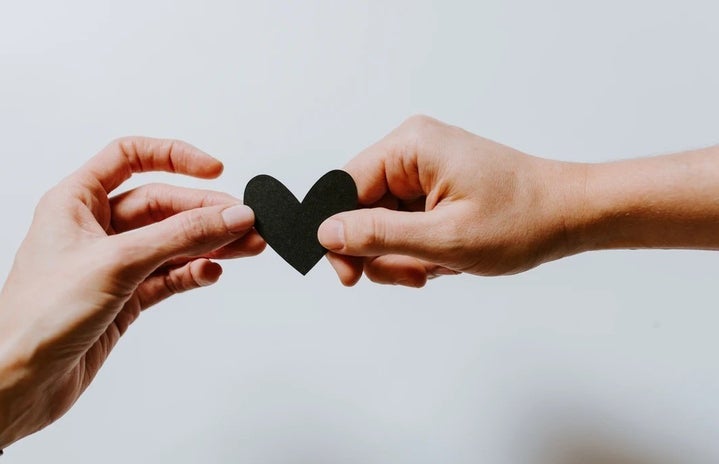TW: abuse, relationship violence
Relationships can be difficult. Inevitably, partners will face challenges and adversity throughout their time together. Arguments or disagreements may happen, but there is a huge difference between arguing respectfully, and crossing over the line of abuse. Many people who have fallen victim to an abusive relationship often have a hard time deciphering what is abuse and what may be normal. Victims of abuse love their partner, despite the abuse, and the love can sometimes prevent them from leaving. However, recognizing the signs of abuse can be a first step in exiting the abusive relationship — but that in it of itself can be a feat.
Abusive partners don’t only break a victim’s heart once, like in a regular failed relationship; they do it over and over again until the victim is worn down. This can be caused by multiple types of abuse. Emotional abuse has a large range. It can go from gaslighting, to put-downs and name-calling, to controlling who the victim sees or what they do. It can also extend into the blurry line that turns into physical abuse, which often begins with displays of violence, like punching a wall, or otherwise damaging property. Physical abuse is also not always punching or hitting a partner. It can be throwing or kicking objects at the victim to inflict harm, and other small acts that may not at first be seen as textbook abuse. Physical abuse may also extend to sexual abuse, which can include coercion – “if you love me, you’ll do ___”-, manipulation and threats, or ignoring the victim for extended periods of time if denied. All of these forms of abuse leave deep scars in a victim’s mind, and it can be incredibly difficult to not only leave, but to heal and unlearn everything that was done to them.
After leaving an abusive relationship, many victims are wary of dating other people for extended periods of time afterward. This may be because they are afraid to get close to someone, to get their heart broken again, and for fear of experiencing the same kind of abuse. However, once a victim of an abusive relationship does find another person that they want to start again with, it can be incredibly difficult to ground oneself and unlearn previous behaviors. Being ‘over’ an abusive partner and still having trauma responses from what they did is understandable and a common feeling. For example, a victim of emotional abuse might flinch every time their new SO talks a little louder than usual – because they were so used to getting yelled at incessantly in the past. They might be shocked that their SO does not scream at them for little mistakes, or that their SO doesn’t care what friends they see or who they hang out with. Adjusting from old patterns to new ones is difficult, but with time, it’s doable. Learning how to be healthy is hard, especially after experiencing trauma.
While healing from any trauma looks different for everyone, the following steps can be helpful reminders for those who are trying to unlearn and reframe their thinking.
1). One of the first steps in trusting someone new is trusting yourself. Finding your current healthy partner trustworthy may be a challenge for those who have experienced manipulation and gaslighting in the past. Despite the past, it is important to trust your instincts, and know that you know better now. You know what red flags look like, and you know that you will not ignore them ever again. Reminding yourself of this can help you to ground yourself in moments of doubt.
2). Accept love. Victims of abusive relationships can find it difficult to accept gifts, accept compliments, and accept genuine intentions from a healthy partner. This can be because they are used to these things being loaded – perhaps, only a gift or loving words used as manipulation to reel them back in after a bitter fight. When something nice is done in a new relationship, it can be normal to be confused, almost – my partner brought me a coffee? Without me asking? There’s no way they did this for no reason… – but accepting is key. Remembering that you are able to accept love, effort, good intentions, and the little things.
3). Know that you are worthy and deserving of love. Extending onto the acceptance step, accept the love that is given to you best you can, and try not to shut it out. Chances are, your new partner wants the best for you, and their intentions are far from ill. To accept the love they are trying to give you, remind yourself that you deserve love. You are not what happened to you, whatever that was. Your partner is likely not putting up a facade of wanting to get to know you, to love you, and to be with you – they truly do. Your past does not ultimately define your present and your future; don’t let it.
4). If necessary, seek therapy. Some things are too difficult to work through on your own, and that’s okay. A great resource to start is at LoveisRespect.org, which includes a hotline to talk through any relationship issues as they arise.
The Domestic Violence Hotline is 1-800-799-7233.

